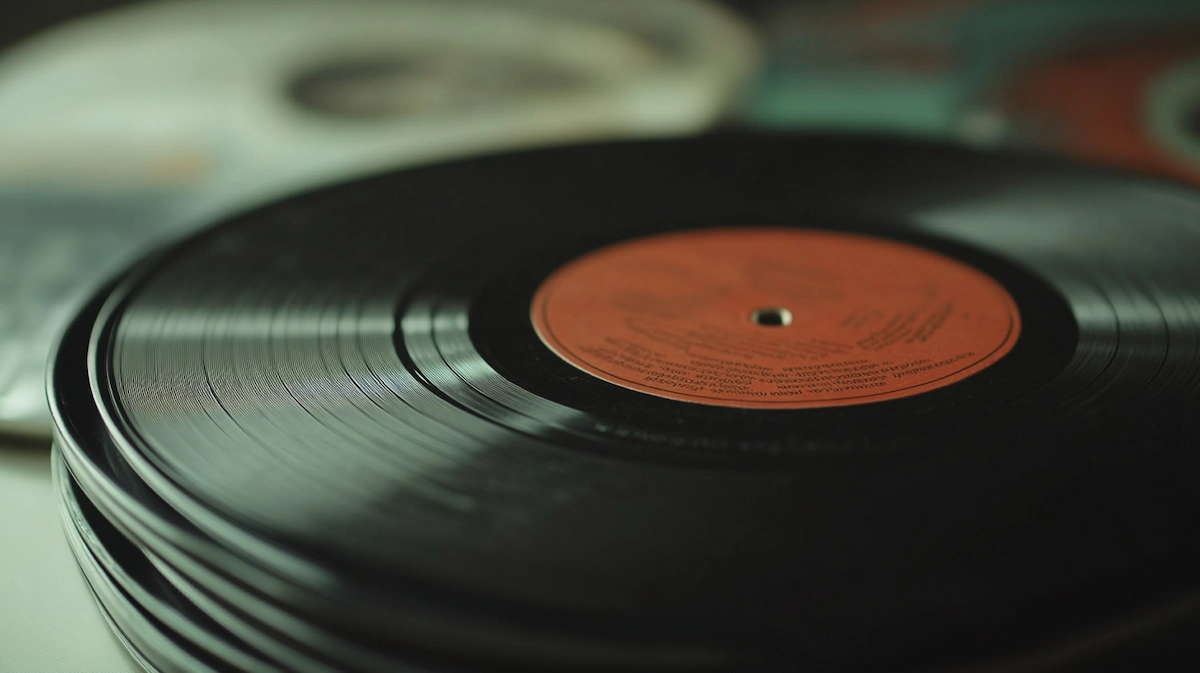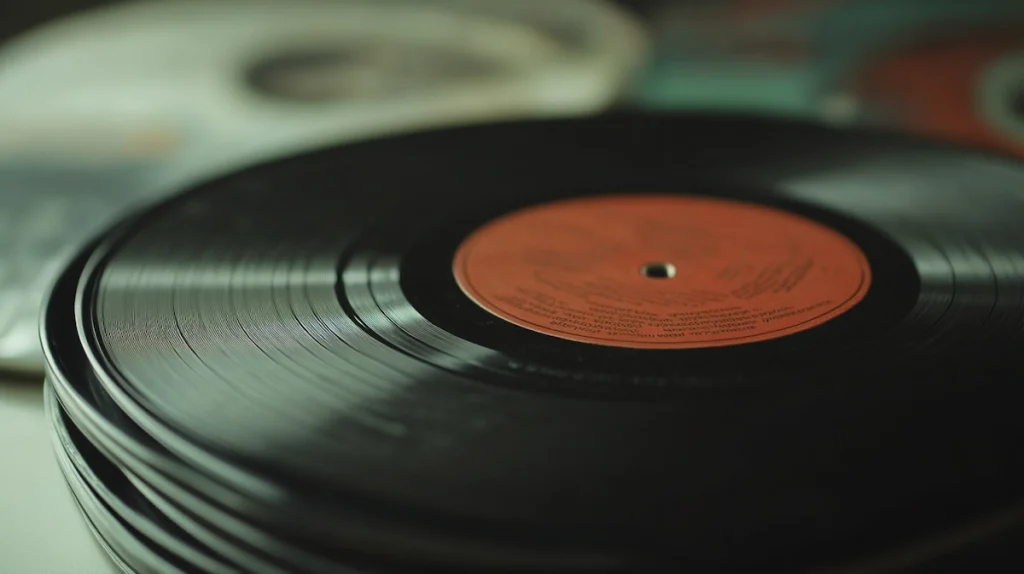Vinyl records have been a beloved medium for music enthusiasts for decades.
Their warm sound, tangible nature, and nostalgic appeal have contributed to their enduring popularity.
But how long can you expect your precious vinyl collection to last? At DJ RECORDS™, we’re passionate about all things vinyl and are here to illuminate this frequently asked question.
The Potential Lifespan of Vinyl Records
Vinyl records are built to last — and with the proper care, they can spin for generations. We regularly come across collections from the 1950s and ’60s that still sound fantastic. Even some early 78 RPM records from the 1900s are still playable today.
On average, a well-kept vinyl record can last 50 to 100 years or more. But that kind of longevity depends on how they’re stored, handled, and played. From climate control to proper shelving, the way a collection is maintained makes all the difference.
Factors Affecting Vinyl Longevity
Several key factors can influence how long your vinyl records will last:
- Storage Conditions: Temperature, humidity, and light exposure all play crucial roles in preserving vinyl. Records should be stored in a cool, dry place away from direct sunlight.
- Handling Practices: How you handle your records can significantly impact their lifespan. Always hold records by the edges, label them, and avoid touching the grooves.
- Cleaning and Maintenance: Regular, gentle cleaning can help remove dust and debris that can cause wear over time. However, improper cleaning methods can do more harm than good.
- Playback Equipment: A well-maintained turntable with an adequately aligned cartridge and the correct tracking force can minimize wear during playback.
- Quality of the Record: The initial quality of the record, including the vinyl compound used and the pressing quality, can affect its longevity.
Signs of Wear and Aging
While vinyl records can last a long time, they’re not immune to wear and aging. Some common signs include:
- Surface noise or crackling during playback
- Visible scratches or scuffs on the record surface
- Warping or deformation of the record
- Fading or discoloration of the label. It’s worth noting that some degree of wear is normal and doesn’t necessarily mean the end of a record’s life. Many vinyl enthusiasts appreciate the subtle imperfections that come with age, considering them part of the record’s character and history.
Preserving Your Vinyl Collection
To maximize the lifespan of your vinyl records, consider these preservation tips:
- Store records vertically in a clean, stable environment
- Use high-quality inner sleeves to protect against dust and static
- Clean your records regularly using appropriate methods and products
- Handle records with care, avoiding contact with the grooved areas
- Ensure your playback equipment is well-maintained and correctly set up
The Future of Your Vinyl Collection
While we can’t predict precisely how long each record will last, with proper care and storage, there’s a good chance that many of the documents in your collection could outlive you. This longevity makes vinyl records special – they’re vessels for music and physical artifacts that can be passed down through generations.
At DJ RECORDS™, we’re committed to helping music lovers transition their vinyl collections with confidence. Whether you’re looking to downsize, declutter, or cash in on rare records, we’re here to make selling your vinyl collection easy, transparent, and rewarding.
Remember, every record tells a story, not just through its music but through its very existence. By taking good care of your vinyl, you’re preserving a musical history for years.
WE BUY OLD RECORDS!
We’ve been buying LPs, 45s, 78s & 12″ singles for well OVER 20 YEARS.
No collection is too large!









